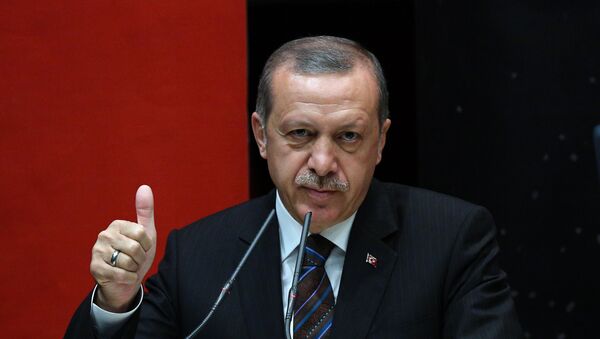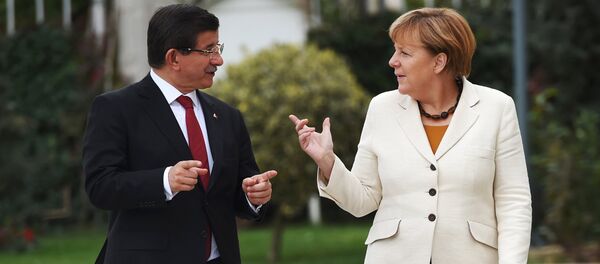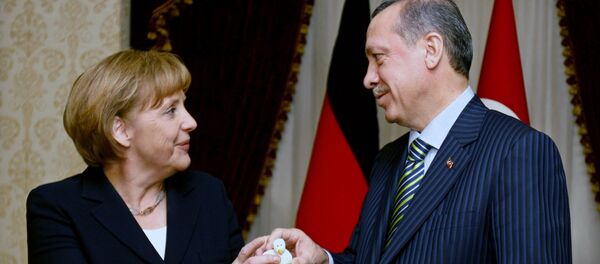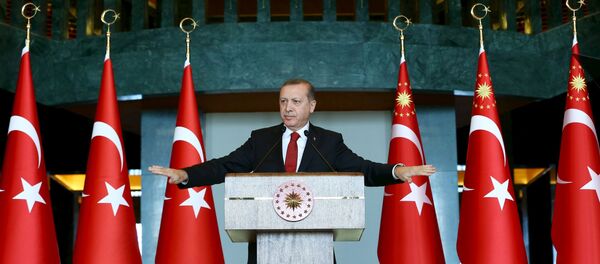Possibly the most controversial of the measures outlined in the strategy is Ankara's plan to get NATO to use its forces to "monitor" Turkey's coastal borders on the Aegean Sea – the main body of water used by migrant smugglers to take refugees from the Middle East to Europe.
Commenting on the action plan, and on the impending NATO defense ministers' meeting discussing the issue, Gareth Jenkins, an Istanbul-based researcher and Turkey expert with the Silk Road Studies Program at Johns Hopkins University, told Radio Sputnik that Ankara's attempts to lure NATO into the Aegean and the Middle East is dangerous and unrealistic, to put it mildly.
With a NATO meeting on the issue scheduled for Wednesday and Thursday, Jenkins noted it's still not clear "exactly what Turkey wants NATO to do, and even the people in NATO are not clear [on] what Turkey is demanding."
Normally, "what happens in this situation is that before there's a public statement, privately a NATO country will tell the other NATO members what it has in mind, and Turkey hasn't done that. At the moment the NATO officials in Brussels are as much in the dark as the rest of us."
Moreover, with his interviewer recalling Ankara's attempts to call on NATO following the incident involving the Turkish downing of a Russian Su-24 jet over Syria late last year, the researcher admitted that "there are certainly concerns in NATO at the moment that Turkey is going to try to use the refugee crisis…to [somehow] get NATO to get more involved in the region to bolster its position against Russia."
Complaining that most of the points outlined in the so-called 10-point action plan released following the meeting between Merkel and Davutoglu were very vague, Jenkins noted that one of the clear ones – the use of NATO ships in the Aegean, is likely to open a whole new can of worms that the alliance is not particularly eager to deal with at the moment.
"The most concrete [point in the plan] was a call for NATO to become more involved in the Aegean with stopping the refugees, but that's highly problematic, because the maritime border, the waters in the Aegean are disputed between Turkey and Greece. So if NATO becomes involved in that then it's going to get dragged into that dispute between Turkey and Greece," the analyst explained.
If it comes down to the use of NATO ships, he noted, there is a very strong likelihood that Greece will attempt to block Turkey's request. "What [Greece] doesn't want is NATO ships in that area, where there's a possibility that Turkey will use the NATO presence to try to reinforce its claim to some of those territorial waters. So I think once it comes to the meeting in Brussels then it will get blocked."
Moreover, Jenkins recalled, there's also the issue of what to do with the refugees that get picked up by NATO ships, were they to be deployed to the area. "If NATO becomes involved and refugees are taken onto NATO ships, what happens next? What do they do with the refugees? NATO ships don't really have any authority to keep the refugees, and who would they return them to?"
Ultimately, the expert suggested, what "really what happened with this meeting is that Merkel and Davutoglu passed the buck, and now the decision is going to be made at the NATO meeting in Brussels…" NATO's response, Jenkins noted, will depend entirely "on what [the Turkish] request will be in detail."
"But even if the money comes: I've talked to a lot of Syrian refugees here in Turkey and most of them are still going to try to get into Europe regardless of whether the money comes. Actually, [even if] 3 billion euros sounds like a lot of money, there are at least 2.5 million refugees in Turkey and when you break it down to how much money that is per refugee it's not a lot of money."
Pointing out that he has observed a growing strain in Turkish attitudes toward refugees on the ground in recent months, Jenkins emphasized that ultimately, only a resolution to the ongoing military conflict in Syria will be able to resolve the refugee crisis for both Turkey and Europe.
"I don't think there's any question that the real solution to the refugee problem lies in sorting out what's happening in Syria and putting an end to the civil war. These other discussions aren't going to solve the essential problem," the analyst concluded.






